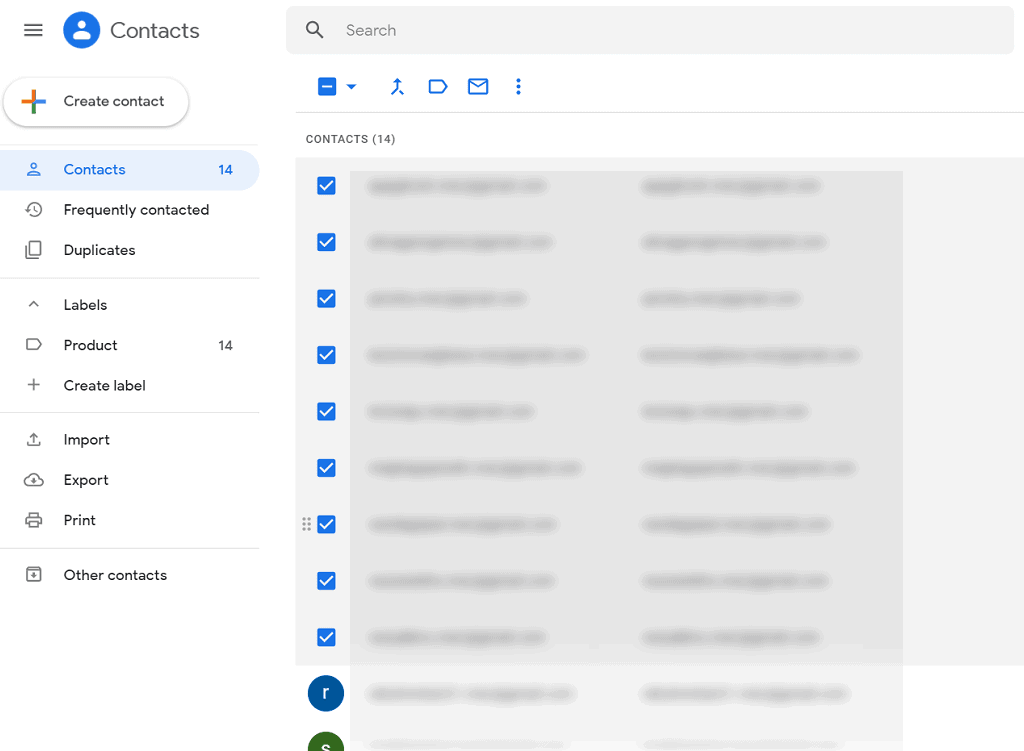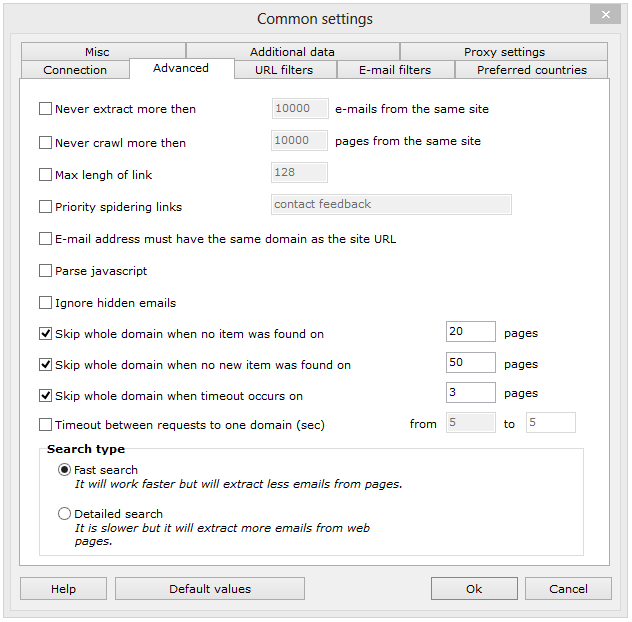Handy Reasons To Choosing A Hospital CEO Email List
Handy Reasons To Choosing A Hospital CEO Email List
Blog Article
What Do I Need To Consider When Buying An Pathologist Mailing List?
When buying a pathologist's email list, a number of elements must be taken into account to ensure that the data you purchase is correct and in compliance with the law and appropriate for your marketing or outreach objectives. Consider the following factors: Data accuracy and quality
The source of data: Make sure that the email list service gathers their data from reputable sources such as professional directories, healthcare databases or verified opt-in contacts. This will ensure that the email messages are accurate and up-to-date.
Verification Process - Check that the email lists were recently verified. Providers should have a system for cleaning and validating emails, which includes removing invalid or inactive addresses. High-quality email lists result in less bounces and better deliverability.
Segmentation and Customization: Search for lists that provide segmentation options, such as by geographic locations, subspecialties (e.g., forensic pathology, clinical pathology), years of expertise, or hospital affiliations. Customization increases your marketing reach by allowing you to reach the right people.
2. Legal Regulations
Data Privacy Regulations – Ensure your email list is compliant with laws on data privacy in Europe (GDPR), the U.S. (CCPA), and any other relevant. Pathologist data should be handled and stored in compliance with the relevant laws while protecting the rights of each patient.
CANSPAM Act: If you are targeting U.S. Pathologists or live in the U.S.A. Check to see if the email list complies the CANSPAM Act. This law regulates commercial emails. Non-compliance can result in hefty fines.
Consent to Opt-In: Check whether the emails on the list were gathered with consent. This will ensure that pathologists have consented to promotional content to be sent and reduces the risk of receiving spam complaints.
3. Provider Reputation
Credibility of the provider Select a trustworthy provider that has delivered accurate and compliant mailing lists. For a better idea of the quality of service, look up reviews, testimonials, and references from healthcare marketers.
Transparency: Providers need to be transparent in their method of collecting data and the frequency with which they update data. Beware of companies that don't offer any information about where their email lists come from.
Customer Support: Choose a provider that offers strong customer support in the event that you need help with your list of questions or technical difficulties.
4. Return on investment (ROI) and cost
Pricing Model: Take a look at different pricing models--whether it's pay-per-contact, a flat fee for the list, or subscription models. Assess whether the cost aligns with your marketing budget as well as the possible ROI (ROI).
Refund Policy: Some companies provide refunds or replacement warranties if a significant number of emails are not valid or do not meet the promises of quality. Make sure that the provider has a clearly-defined return or exchange policies.
Compare the price and quality. Also, consider the additional services (e.g. CRM integration, campaign administration) that are offered. The cheapest list might not be the most effective if it has poor deliverability.
5. Ownership and Use of Data
Licensing and Usage Rights: Make sure you know whether you are buying the list for a single use or if you'll have the data to run ongoing campaigns. Some providers provide an exclusive license and others allow unlimited use. This latter option is better suited to long-term campaigns.
Shared Lists: Find out if the email list is only available to you or shared with other buyers. Shared Lists - Determine if your email list is private or shared. Exclusive lists are likely to increase engagement, since the list's contacts won't be receiving numerous emails.
6. Data Integration and Format
Integrity with email marketing tools and CRM Check that the email list can be easily integrated into your existing CRM tools or other email marketing software. The data must be in a format that is widely used such as CSV and Excel. This allows for seamless import.
Data Segmentation. Examine the ease with that you can sort and segment your data once integrated. Effective segmentation allows you to make personalized emails that usually are more open and have higher reply rates.
7. Ethical Aspects
Relevance of the message you send Pathologists are highly trained professionals. It is important to ensure that your product messages, services, or even your products meet their needs. Sending irrelevant messages could damage your reputation and result in spam complaints.
Spam Reports could result due to sending excessive emails or unsubmitted content. Plan your campaigns carefully to avoid damaging your sender's reputation.
Conclusion
A pathologist email database can be a powerful tool for advertising should you choose to purchase it with care. To maximize the potential of your marketing you should consider data quality as well as legal compliance and reputation. Make sure that your list is tailored to your specific requirements, and you always follow the privacy laws and ethical practices in marketing. With these considerations and ensuring that you are able to design efficient and effective email campaigns targeted at pathologists. Read the top pathologist email list for website guide.
What Should I Consider When Buying An Appending For Data?
To decide whether a data appending business is right for you, it's essential to assess several factors. The service must improve your existing database and keep compliance, accuracy and ethical standards. By adding information that is lacking, such as an email address, phone number address, or other demographic information, you can enrich your database. When you are purchasing data appending services it is important to consider a few important things to take into consideration: 1. Data Accuracy
The source of data: Ensure the data provider is using reliable quality sources like authentic databases, public records or opt-in directories. Trustworthy data providers typically obtain their data from legitimate sources. This ensures that the data appended is current and accurate.
Verification Process: Find out whether the company has a robust procedure for validating and verifying the data appended. This helps to ensure the information is current, accurate and applicable for your needs. As part of your provider's services, you should expect regular updates and data cleansing.
Match Rate: Every provider has a unique match rate which is the proportion of records that you are able to enrich with new information. You must balance a high percentage of match with the accuracy of your data. High match rates are vital but shouldn't be at the cost of quality.
Customization: Make sure that the company offers custom options for appending data. This could include the addition of different types of data, like demographics and firmographic data as well as behavioral information.
2. Data Security and Privacy
Conformity with regulations - Data appending is a service that involves handling sensitive personal information. It is therefore crucial to ensure that you are in compliance with privacy laws like the California Consumer Privacy Act and General Data Protection Regulation. Data appended must be gathered, used, and processed legally to avoid fines.
Consent Management – Ensure that the information is provided by individuals that have consented explicitly to sharing their personal information. Do not use data sources that have unsound practices or compromise the privacy of users. This could lead to legal and ethical issues.
Data Security: Verify that the company you choose to use strict security measures for data to protect both the integrity and confidentiality of your existing database as and the data that is added to it. Secure data transfers, encryption, and access control are all a part of this.
3. Provider Reputation
Vendor Reputable: Select one with an outstanding reputation within the business for providing data appending that is precise and in compliance. You can assess their previous performance by looking at the testimonials, case studies and reviews. A company with a long-standing reputation is more likely to offer top-quality services and will be able to ensure compliance with legal regulations.
Industry Specialization: Some companies specialize in particular industries such as healthcare and finance. You should choose a vendor that is experienced and knowledgeable in your sector if you're in a niche. They may offer solutions that are tailored to your specific requirements.
4. Cost and Cost and Return on Investment (ROI)
Pricing Model: Data appending firms have different pricing plans. For example they can charge per record or offer flat fees for large updates. Make sure you are aware of the price structure and how it is aligned to your budget. Be cautious of products that appear to be extremely low in price, as it could be a sign of poor information.
Determine your ROI potential by adding data. A great service will increase the engagement of customers, conversion rates and performance in marketing. Compare the cost of the service against the expected gains from having enriched, more actionable information.
5. Data Types and Optional Appending Options
Types: Determine which types of data that you want to be added to your databases. The most popular kinds are:
Email addresses are vital for email marketing campaigns.
Phone Numbers are crucial for sales outreach, customer service and many other types of services.
Demographic information is useful for segmentation as well as targeted marketing.
Firmographic Data is essential for B2B businesses who target businesses based on their revenue size, employees or industry.
Social Media profiles: Certain providers allow you to add your social media handles. This can be useful in social and digital marketing.
6. Data Integration and Format
Compatibility - Ensure that the data you add is in a format compatible with your CRM system or marketing automation tool or any other tool. The most common formats are CSV, Excel, or API integration. These formats should allow for easy data import and use.
Data Cleansing and Enrichment A service provider who is reliable will offer cleansing and enrichment services. This involves correcting data that is inaccurate by removing duplicates and eliminating outdated records. Data enrichment is more than simply adding information. It enhances the quality of the data you already have.
7. Ethical Considerations
Transparency: The service must be clear about where and how data is obtained. Ethical data appending services will be able to enforce strict rules regarding data sourcing and usage and ensure that the data is collected by legally-approved and transparent methods.
Impact on Engagement: Adding contact information like phone numbers or emails should not lead you to engage in spammy, invasive or unwelcome methods. Use the added data responsibly. Make sure you follow best practices, including providing opt-outs and respecting privacy.
Conclusion
When buying data appending service be sure to consider quality of the data, legal compliance, and the reputation of the service provider. Services that provide safe, verified data and are compliant with privacy regulations such as GDPR or CCPA must be considered first. Aside from ensuring that the information you're adding is compatible with the systems within your business, consider the ROI on making investments in reliable and enriched information. By selecting the right appending company and focus your efforts on ethical standards to enhance your marketing strategies and business performance. Have a look at the top data appending services for blog info.